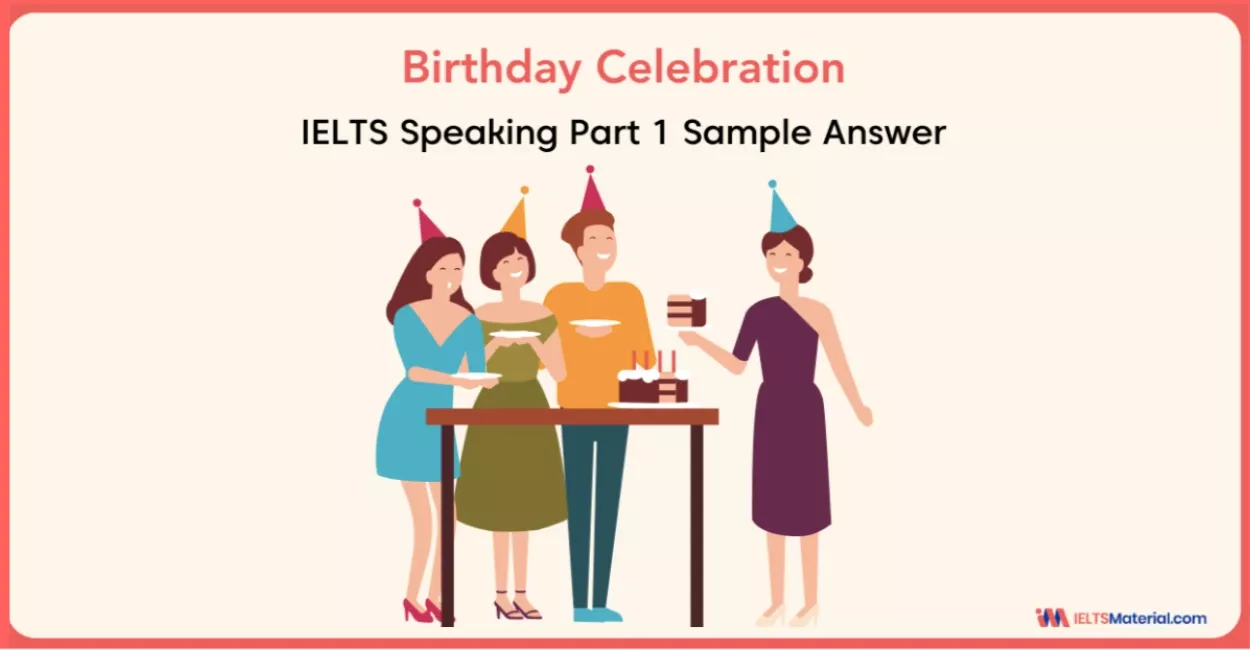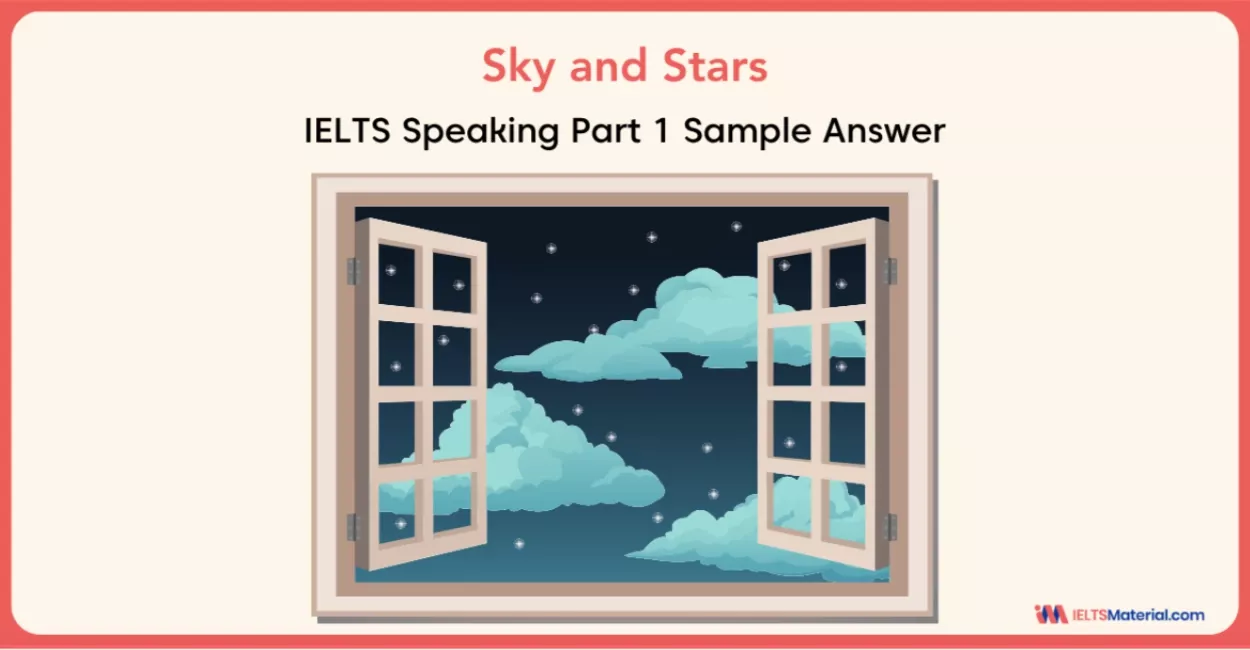Mathematics: IELTS Speaking Part 1 Sample Answers
5 min read
Updated On
-
Copy link
Enhance your English-speaking abilities and achieve a higher band score by utilizing our mathematics IELTS speaking part 1 sample answers, expanding your vocabulary, and employing our expert answer-improvement tips to achieve fluency and confidence.
Table of Contents

Limited-Time Offer : Access a FREE 10-Day IELTS Study Plan!
Mathematics is occasionally considered a challenging subject, but it can be an easier topic to discuss if you are prepared. In IELTS Speaking Part 1, you might be asked about your experiences learning maths at school, your opinions on its usefulness, or your feelings towards the subject. While many candidates panic when they hear this topic, it is actually an excellent opportunity to demonstrate personal opinions, clear examples, and high-level vocabulary.
Let’s take a look at some sample responses to mathematics IELTS Speaking Part 1-related questions. Additionally, we will look at some tips and the latest IELTS speaking vocabulary to boost your score to frame your answers, and develop confidence.
Aiming for a high Speaking score? Take a look at the expert tips and tricks below!
Mathematics IELTS Speaking Part 1 Questions with Sample Answers
In Part 1 of IELTS Speaking, to answer the IELTS examiner’s questions naturally and fluently, you should focus on one idea only and then expand that idea into a long, meaningful sentence using grammar patterns and vocabulary, which can help you get Band 8.0+ for IELTS Speaking.
So, let's take a look at some sample answers to Mathematics IELTS Speaking Part 1 questions that will help you to frame your answers and achieve a high IELTS band score.
1 Are you good at math?
Not really. I tend to have a more abstract brain, so I am more apt to subjects like art, literature, or music. Math was always the class I would dread all day. Actually, I even failed Geometry in high school.
2 Do you like math?
To be honest, I was not really into Math when I was young because I found it extremely tedious. But when I got into high school, I gradually found myself more comfortable when studying Math and usually got high marks in this subject and this just made me keen on learning Math even more.
3 Do you think females are good at maths?
Hmm, I can’t say. I haven’t noticed whether one gender is better than the other at Maths. However, I’ve heard the stereotype that women don’t tend to think as logically as men, so maybe this affects their mathematical abilities.
4 At what age did you start studying mathematics?
Well, I can’t exactly remember, but Math is a compulsory subject in primary school. All children have to learn this complex subject from the first grade. So I probably learnt simple addition at that age.
5 Do you like to use a calculator?
Yes, I do love using a calculator to make everything simpler! It allows me to calculate numbers more quickly without having to thinking much. I just need to input the figures into the calculator, then the right answers are displayed on the screen.
6 Who taught you math?
My teachers, with my parents’ help at home. It all started with very basic equations like “If I take away one of these jelly beans, how many are there?”, which my parents practiced with me at home, also. But, first and foremost, it started at school.
7 When did you start learning math?
I started learning basic arithmetic in the first grade, geometry in the third grade and algebra in the fifth grade. Then we did statistics in middle school and studied calculus in high school.
Struggling with IELTS Speaking Part 1?
Get expert help with a FREE IELTS demo session!
Mathematics IELTS Speaking Part 1 Vocabulary
Vocabulary is crucial for IELTS Speaking Part 1 as it enables you to express nuanced ideas clearly and confidently, ensuring you can discuss complex topics with precision and fluency. So, learn some essential words, their meaning, and their usage to improve your IELTS vocabulary for speaking on mathematics IELTS Speaking Part 1-related questions.
|
Word/Phrase |
Meaning |
Example Sentence |
|---|---|---|
|
Abstract |
Difficult to understand; not concrete or practical |
I found abstract mathematical concepts like imaginary numbers very confusing in school. |
|
Apt |
Appropriate or suitable; capable |
I was more apt at mental calculations than solving algebraic expressions. |
|
Dread |
To feel great fear or reluctance |
I used to dread our Monday morning maths lessons—they always involved surprise quizzes. |
|
Extremely tedious |
Boring, repetitive, and tiresome |
I found solving long equations extremely tedious and mentally exhausting. |
|
Logical thinking |
The process of reasoning in a clear, structured way |
Maths helps develop logical thinking, which is useful in real-world decisions. |
|
Problem-solving |
The ability to find solutions to difficult or complex issues |
My teacher said maths improves our problem-solving skills, especially with word problems. |
|
Equation |
A mathematical statement showing two expressions are equal |
I often made mistakes when rearranging variables in algebraic equations. |
|
Calculation |
A mathematical process used to find an answer |
We had mental maths sessions where we practised fast and accurate calculations. |
|
Geometry |
The study of shapes, angles, and sizes |
I enjoyed geometry more than algebra because it felt more visual and logical. |
|
Statistics |
The science of collecting and interpreting data |
Learning statistics helped me analyse survey results in a science project. |
Tips to Answer Mathematics IELTS Speaking Part 1 Questions
To be fully prepared for any exam, and the IELTS in particular, requires the inclusion of useful IELTS Speaking tips to impress the examiner and allow you to answer all questions within the time limit. Therefore, let's examine some topic-specific tips on how to respond to mathematics IELTS Speaking Part 1 questions.
- Talk about feelings towards maths: Use emotion-based adjectives and expressions to explain your relationship with the subject. It shows fluency and personal connection, something examiners value. For example:
-
- I dreaded maths classes…
- I found it extremely tedious…
- I felt proud when I solved a difficult problem...
- Differentiate between basic and advanced maths: Be clear about what kinds of maths you liked or disliked. This gives you space to use specific vocabulary like ‘Arithmetic vs. algebra’, ‘Geometry vs. statistics’, ‘Basic calculations vs. abstract equations’. For example, ‘I enjoyed arithmetic and geometry but struggled with the abstract nature of algebraic formulas’.
- Use real-life applications: Show how maths relates to daily life, even if you dislike it. This allows you to demonstrate practical thinking and real-world vocabulary. For example, ‘I use mental maths to split bills or calculate shopping discounts, which makes it quite handy’.
- Compare school vs. now: Create a contrast to extend your answers. This adds depth and allows you to use a wider range of tenses and transitions. For example, ‘Back in school, I dreaded maths homework, but now I actually find basic maths quite useful for personal finance’.
- Use the vocabulary in context, not just as definitions: Do not use big words if you are not accustomed to their usage. Instead, make sure your usage is natural, clear, and relevant to the question.
-
- Poor: ‘Maths is logical. I like logic.’
- Better: ‘I enjoy how maths sharpens logical thinking and encourages a structured approach to problems.’
To conclude, although the topic of mathematics might feel intimidating, it actually offers an excellent chance to talk about your academic life, personal strengths or weaknesses, and everyday habits. By practicing more IELTS Speaking Part 1 topics and questions with answers, using topic-specific vocabulary, and giving relatable personal examples, you will show fluency, coherence, and lexical range, key criteria for a high band score.
Useful Links:
- Housework: IELTS Speaking Part 1 Model Answer
- Morning Routine: IELTS Speaking Part 1 Sample Answers
- Sharing: IELTS Speaking Part 1 Sample Answer
- What IELTS Examiners Look for in the Speaking Test?
- Recent IELTS Topics in IELTS Speaking Tests 2025
- How to Use Idioms in IELTS Speaking for a Higher Score?
- Linking words for IELTS Speaking Section
- IELTS Vocabulary Words List for Band 8 or 9
- Coherence of Listening with Reading and Speaking for IELTS

Start Preparing for IELTS: Get Your 10-Day Study Plan Today!
Explore other Speaking Part 1 Topics

Nehasri Ravishenbagam

Nehasri Ravishenbagam

Kasturika Samanta

Prity Mallick
Recent Articles

Nehasri Ravishenbagam

Nehasri Ravishenbagam

Kasturika Samanta

Kasturika Samanta




Post your Comments